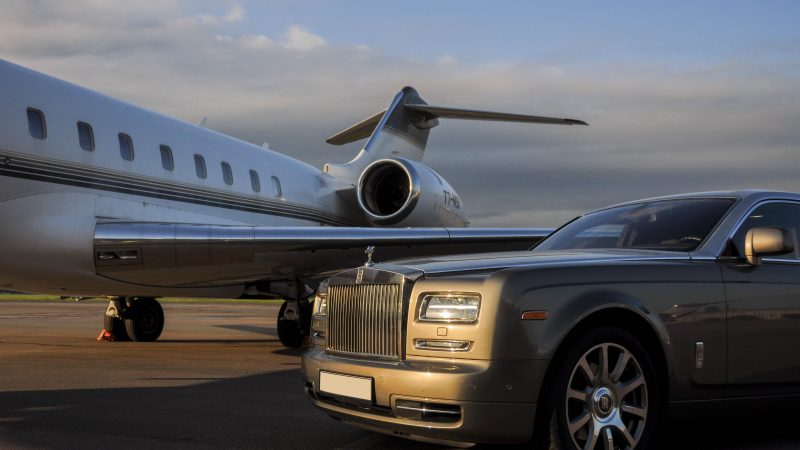
Amid all the speculation about the contents of the red box on 26 November, it’s worth restating: Rachel Reeves inherited financial chaos from the Conservatives. Building an economy that creates growth, safeguards and improves essential services, and builds on the successes we’ve managed so far in waiting lists, free school meals, and the delivery of GB Energy is a big task. Doing so in the face of volatile global headwinds is a challenge.
Part of that challenge lies in finding new revenue sources and ensuring that those with the broadest shoulders carry the greatest burden. One idea that’s gathering steam at home and internationally is taxing emissions from private jet flights.
The UK is currently the private jet capital of Europe, accounting for 15% of European private jet emissions. Despite this outsized environmental impact, the majority of private jet flights pay no VAT or fuel duty, and many even pay the same low rate of Air Passenger Duty (APD) as passengers on commercial flights or none at all.
This is a bizarre anomaly, meaning that, in effect, a working parent driving to the supermarket for the weekly shop pays more in tax and duty than a billionaire flying to the Caribbean.
Levies on private jets would be genuinely progressive in their impact.
Our commitment to increasing the higher rate of Air Passenger Duty (APD) on private jet flights was a welcome first step. But Rachel should go further. Even after the proposed increase, the higher rate of APD on the longest private jet flights will only be £1,141 by April 2026. For a billionaire, this is a negligible sum, often less than 2% of the total cost of the flight vs on average 43% of the total cost of an economy ticket on a passenger plane – there is clearly room to increase this much further to raise significantly more revenue and ensure greater fairness between private and passenger flight taxation.
We should also ensure that all private jets are paying the highest rate of APD, closing a loophole that currently sees half of flights paying a lower, standard APD rate, and over a fifth paying no APD at all.
Analysis from Green Alliance shows that taxing private jet kerosene fuel at a modest £1 per litre could raise up to £200 million per year. This single measure could, for example, more than cover the cost of extending the successful £3 bus fare cap, making travel easier and greener for working people across Britain.
Private jet demand is increasingly price inelastic, particularly for leisure travel. A significant tax uplift is highly unlikely to impact the decisions of the super-rich. This means it poses minimal risk to the government’s growth agenda, while providing a crucial source of additional revenue to help achieve our mission of national renewal.
It would also give us the opportunity to show global climate leadership by joining, or aligning with, the Global Solidarity Levies Task Force’s (GSLTF) Premium Aviation Coalition. This is a growing group of countries, including our neighbours France and Spain, which have formed to raise revenues from premium travel to be spent on sustainable, efficient economic growth.
Earlier this month, Keir Starmer attended COP30, the global climate conference, in Brazil – a clear indication of how seriously Britain, and the Labour Party, takes climate action. While levies were not specifically on the agenda at COP this year, working with other nations to identify effective funding for climate action is going to be critical in the years ahead – and aviation should be a part of those discussions.
Right now, private jets release huge amounts of emissions into our atmosphere, while their super-rich passengers shoulder almost no financial responsibility for the impacts of their behaviour.
Higher levies on private jets aren’t about making it harder for everyday people to fly for work or holidays. It’s about the tiny minority who can afford luxury at the expense of the planet carrying their fair share of the burden, and helping raise the revenue the country badly needs.
READ MORE
Subscribe here to our daily newsletter roundup of Labour news, analysis and comment– and follow us on Bluesky, WhatsApp, X and Facebook.
Share your thoughts. Contribute on this story or tell your own by writing to our Editor. The best letters every week will be published on the site. Find out how to get your letter published.
-
- SHARE: If you have anything to share that we should be looking into or publishing about this story – or any other topic involving Labour– contact us (strictly anonymously if you wish) at [email protected].
- SUBSCRIBE: Sign up to LabourList’s morning email here for the best briefing on everything Labour, every weekday morning.
- DONATE: If you value our work, please chip in a few pounds a week and become one of our supporters, helping sustain and expand our coverage.
- PARTNER: If you or your organisation might be interested in partnering with us on sponsored events or projects, email [email protected].
- ADVERTISE: If your organisation would like to advertise or run sponsored pieces on LabourList‘s daily newsletter or website, contact our exclusive ad partners Total Politics at [email protected].




More from LabourList
Letters to the Editor – week ending 15th February 2026
‘Labour council candidates – it’s tough, but all is not lost’
‘Labour won’t stop the far right by changing leaders — only by proving what the left can deliver’